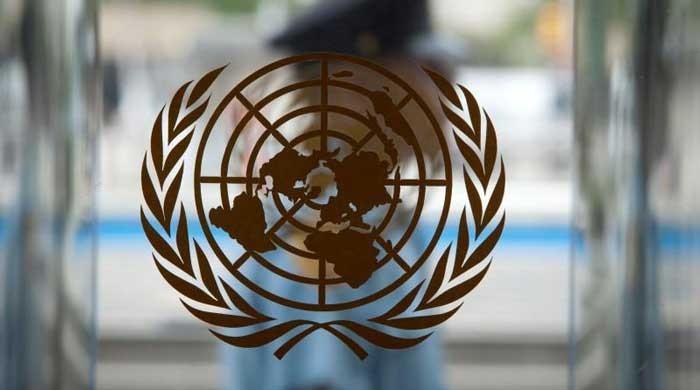Pakistani economy to slightly recover from 2021 onwards: UN report
 Continued commitment to reform, combined with productive investment in infrastructure and strategic capacity development, will be critical for the country to find its way back to its previous growth path, says the UN report
Continued commitment to reform, combined with productive investment in infrastructure and strategic capacity development, will be critical for the country to find its way back to its previous growth path, says the UN report
The United Nations has said it expects the Pakistani economy to recover slightly from 2021 onwards due to increased government revenues and implementation of government reforms.
According to UN’s World Economic Situation and Prospects (WESP) report, the Indian economy is expected to grow by 5.7 per cent in the current fiscal year and is expected it to rise to 6.6 per cent in the next. Bangladesh is forecast to grow by 8.1 per cent this fiscal year and 7.8 in the next.
The report added that only China has a higher growth rate than India among the world's large economies with a six per cent forecast for the current calendar year.
While talking about Pakistan, the report highlighted that Islamabad has been struggling with a balance-of-payments crisis and the burden of high public debt, which have led to an arrangement with the IMF and corresponding fiscal tightening.
“High inflation and security concerns have hurt domestic demand and private investment, and the government’s ability to address the slowdown has been severely curtailed by the fiscal tightening,” stated the report.
“Export growth has fallen to 0.4 per cent owing to disappointing sales of textiles, which constitute 60 per cent of the country’s goods exports. Gross Domestic Product (GDP) growth has remained weak at 3.3 per cent in both 2018 and 2019—well below the 4–6 per cent range of previous years. Nevertheless, the economy of Pakistan is expected to recover slightly from 2021 onward as increased government revenues from a tax hike allow expanded public investment and as other government reforms required by the IMF begin to bear fruit,” the report added.
The report emphasised that the country may find its way back to the growth part if it maintains its commitment to reform along with productive investment in infrastructure and strategic capacity development.
Meanwhile, the State Bank of Pakistan is balancing a stronger commitment to inflation targeting with a managed depreciation of the currency, but this is complicated by increases in energy tariffs that have been imposed as part of the fiscal reform package.
“While the tightened monetary policy in Pakistan is expected to help move inflation towards target levels in the years to come, the country’s inflation remains extremely vulnerable to fuel price fluctuations and weather conditions, as is the case for most countries in the region," the report cautioned.
‘Global economy anaemic and incomes likely to suffer’The UN expects growth to remain “anaemic” in most advanced economies, including the United States. Japan may do better, because of the Olympics, according to Richard Kozul-Wright, head of globalisation and development strategies at the UN Conference on Trade and Development (UNCTAD) and co-author of the report.
“For this year there is a hope of a pick-up, but downside risks and vulnerabilities remain very significant,” said Kozul-Wright.
“Quite a large number of countries will actually see stagnation or decline in per capita incomes this year, predominantly in Latin America and Sub-Saharan Africa,” he said, flagging the burden of debt repayment and interest payments.
“Impacted by prolonged trade disputes, the global economy suffered its lowest growth in a decade, slipping to 2.3 per cent in 2019… however, [the world] could see a slight uptick in economic activity in 2020 if risks are kept at bay,” the UN said.
The report further states that growth of 2.5 per cent in 2020 is possible, “but a flareup of trade tensions, financial turmoil, or an escalation of geopolitical tensions could derail a recovery. In a downside scenario, global growth would slow to just 1.8 per cent this year.”
It said a prolonged weakness in global economic activity may cause significant setbacks for sustainable development, including the goals to eradicate poverty and create decent jobs for all.
“At the same time, pervasive inequalities and the deepening climate crisis are fueling growing discontent in many parts of the world,” it added.
With additional information from Reuters


Post a Comment